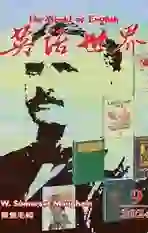Of Human Bondage (Excerpt)《人生的枷锁》(节选)
2024-09-04威廉·萨默塞特·毛姆/文张柏然张增健倪俊/译
【导读】《人生的枷锁》是毛姆1915年发表的自传体长篇小说,凭此确立了他在英国文坛的地位。小说讲述了男主人公菲利普从童年到青年时期的辛酸遭遇:他先天跛足,父母早亡,寄人篱下,饱尝辛酸;同时他孤僻敏感,个性鲜明,善于思考,不断进步。小说反映了菲利普在身体、家庭、教育、宗教、金钱、事业、爱情等方面经历的重重枷锁和羁绊,写尽了人生成长过程中的迷惘、挫折、痛苦、磨砺与探索,是一部难得的成长之书。本篇节选自小说第51章,讲的是菲利普在追求绘画理想时内心的挣扎与抉择。
“Pardon, monsieur, I should like to speak to you for one moment.”
“对不起,先生,我想耽搁您一下,有几句话要对您说。”
Foinet gave him a rapid glance, recognised him, but did not smile a greeting.
富瓦内朝他扫了一眼,认出了他,但是紧绷着脸没同他打招呼。
“Speak,” he said.
“说吧。”他说。
“I’ve been working here nearly two years now under you. I wanted to ask you to tell me frankly if you think it worth while for me to continue.”
“我在这儿跟您学画,差不多已学了两年。想请您坦率地告诉我,您觉得我是否还值得继续学下去?”
Philip’s voice was trembling a little. Foinet walked on without looking up. Philip, watching his face, saw no trace of expression upon it.
菲利普的声音微微颤抖。富瓦内头也不抬地继续往前迈着步子。菲利普在一旁察言观色,不见他脸上有任何表示。
“I don’t understand.”
“我不明白你的意思。”
“I’m very poor. If I have no talent I would sooner do something else.”
“我家境贫寒。如果我没有天分,我想还不如及早改行的好。”
“Don’t you know if you have talent?”
“你有没有天分,难道你自己不清楚?”
“All my friends know they have talent, but I am aware some of them are mistaken.”
“我的那些朋友们,个个自以为有天才,可我知道,其中有些人缺少自知之明。”
Foinet’s bitter mouth outlined the shadow of a smile, and he asked:
富瓦内那张不饶人的嘴巴微微一撇,嘴角漾起一丝笑意,问道:
“Do you live near here?”
“你就住在这儿附近?”
Philip told him where his studio was. Foinet turned round.
菲利普把自己画室的地址告诉了他。富瓦内转过身子。
“Let us go there? You shall show me your work.”
“咱们就上你画室去。你得让我看看你的作品。”
“Now?” cried Philip.
“现在?”菲利普嚷了一声。
“Why not?”
“有何不可呢?”
Philip had nothing to say. He walked silently by the master’s side. He felt horribly sick. It had never struck him that Foinet would wish to see his things there and then; he meant, so that he might have time to prepare himself, to ask him if he would mind coming at some future date or whether he might bring them to Foinet’s studio. He was trembling with anxiety. In his heart he hoped that Foinet would look at his picture, and that rare smile would come into his face, and he would shake Philip’s hand and say: “Pas mal2. Go on, my lad. You have talent, real talent.” Philip’s heart swelled at the thought. It was such a relief, such a joy! Now he could go on with courage; and what did hardship matter, privation, and disappointment, if he arrived at last? He had worked very hard, it would be too cruel if all that industry were futile. And then with a start he remembered that he had heard Fanny Price say just that. They arrived at the house, and Philip was seized with fear. If he had dared he would have asked Foinet to go away. He did not want to know the truth. They went in and the concierge handed him a letter as they passed. He glanced at the envelope and recognised his uncle’s handwriting. Foinet followed him up the stairs. Philip could think of nothing to say; Foinet was mute, and the silence got on his nerves. The professor sat down; and Philip without a word placed before him the picture which the Salon had rejected; Foinet nodded but did not speak; then Philip showed him the two portraits he had made of Ruth Chalice, two or three landscapes which he had painted at Moret, and a number of sketches.
菲利普反倒无言以对。他默不作声地走在画家的身旁,心里七上八下,说不出有多紧张。他万万没想到富瓦内竟会立时三刻要去看他的作品。他真想问问富瓦内:要是请他改日再去,或是让自己把作品拿到他画室去,他可介意?这样菲利普就可在思想上早作准备,免得像现在这样措手不及。菲利普心慌意乱,连身子也哆嗦起来。他打心底里希望富瓦内在看了他的作品以后,脸上会泛起那种难得看到的笑容,而且还一边同他握手一边说:“不错呀!好好干吧,小伙子。你很有才气,真有几分才气哩。”想到这儿,菲利普心头不觉热乎起来。那该是多大的安慰!多么令人欢欣!他从此可以勇往直前了。只要能达到胜利的终点,什么艰苦呀,贫困呀,失望呀,那又算得了什么呢?他从来没偷懒,而要是吃尽辛苦,到头来竟是白费劲一场,那才叫人疾首痛心呢。他猛地一惊,想起范妮·普赖斯不也正是这么说的!等他们走到了住所跟前,菲利普完全被恐惧攫住了。他要是有胆量的话,说不定会请富瓦内走开的。现在他不想知道真情了。在他们进屋子的当儿,看门人递给菲利普一封信,他朝信封看了一眼,认出上面是他大伯的笔迹。富瓦内随着菲利普上了楼。菲利普想不出话茬来;富瓦内也一语不发,而这种沉默比什么都更叫人心慌意乱。教授坐了下来,菲利普什么也不说,只是把那幅被艺展退回来的油画放在富瓦内面前。富瓦内点点头,还是不做声。接着,菲利普又给富瓦内看了两幅他给露思·查利斯画的肖像,两三幅在莫雷画的风景画,另外还有几幅速写。
“That’s all,” he said presently, with a nervous laugh.
“就这些了。”菲利普一边说,一边局促不安地干笑一声。
Monsieur Foinet rolled himself a cigarette and lit it.
富瓦内自己动手卷了一支烟,点着了。
“You have very little private means?” he asked at last.
“你没什么家私吧?”他终于开口问道。
“Very little,” answered Philip, with a sudden feeling of cold at his heart. “Not enough to live on.”
“很少,”菲利普回答,心里倏地凉了半截,“尚不足以糊口。”
“There is nothing so degrading as the constant anxiety about one’s means of livelihood. I have nothing but contempt for the people who despise money. They are hypocrites or fools. Money is like a sixth sense without which you cannot make a complete use of the other five. Without an adequate income half the possibilities of life are shut off. The only thing to be careful about is that you do not pay more than a shilling for the shilling you earn. You will hear people say that poverty is the best spur to the artist. They have never felt the iron of it in their flesh. They do not know how mean it makes you. It exposes you to endless humiliation, it cuts your wings, it eats into your soul like a cancer. It is not wealth one asks for, but just enough to preserve one’s dignity, to work unhampered, to be generous, frank, and independent. I pity with all my heart the artist, whether he writes or paints, who is entirely dependent for subsistence upon his art.”
“要时时刻刻为生计操心,世上再没有什么比这更丢脸的了。那些视金钱如粪土的人,我就最瞧不起。他们不是伪君子就是傻瓜。金钱好比第六感官,少了它,就别想让其余的五种感官充分发挥作用。没有足够的收入,生活的希望就被截去了一半。你得处心积虑,锱铢必较,决不为赚得一个先令而付出高于一个先令的代价。你常听到人们说,穷困是对艺术家最有力的鞭策。唱这种高调的人,自己从来没有亲身尝过穷困的滋味。他们不知道穷困会使你变得多么卑贱。它使你蒙受没完没了的羞辱,扼杀掉你的雄心壮志,甚至像癌一样地吞蚀你的灵魂。要的并非是财富本身,而是至少够用的财富可以提供的保障3:有了它,就可以维持个人尊严,工作不受阻挠,做个慷慨、率直、保持住独立人格的人。我打心底里可怜那种完全靠艺术糊口的艺术家,耍笔杆子的也罢,搞画画的也罢。”
Philip quietly put away the various things which he had shown.
菲利普悄没声儿地把刚才拿出来的画,一一收了起来。
“I’m afraid that sounds as if you didn’t think I had much chance.”
“说话听音——我想您的意见似乎是说,我很少有成功的希望吧。”
Monsieur Foinet slightly shrugged his shoulders.
富瓦内先生微微耸了耸肩。
“You have a certain manual dexterity. With hard work and perseverance there is no reason why you should not become a careful, not incompetent painter. You would find hundreds who painted worse than you, hundreds who painted as well. I see no talent in anything you have shown me. I see industry and intelligence. You will never be anything but mediocre.”
“你的手不可谓不巧。看来你只要肯下苦功夫,持之以恒,没有理由当不成个兢兢业业、还算能干的画家。到那时,你会发现有成百上千个同行还及不上你,也有成百上千个同行得同你不相上下。在你给我看的那些东西里,我没有看到横溢的才气,只看到勤奋和智慧。你永远也不会超过二三流的水平。”
Philip obliged himself to answer quite steadily.
菲利普故作镇静,用相当沉着的口吻回答说:
“I’m very grateful to you for having taken so much trouble. I can’t thank you enough.”
“太麻烦您了,真过意不去。不知该怎么谢您才好。”
Monsieur Foinet got up and made as if to go, but he changed his mind and, stopping, put his hand on Philip’s shoulder.
富瓦内先生站起身,似乎要告辞了,忽儿又改变了主意。他收住脚步,将一只手搭在菲利普的肩膀上。
“But if you were to ask me my advice, I should say: take your courage in both hands and try your luck at something else. It sounds very hard, but let me tell you this: I would give all I have in the world if someone had given me that advice when I was your age and I had taken it.”
“要是你想听听我的忠告,我得说,拿出点勇气来,当机立断,找些别的行当碰碰运气吧。尽管话不中听,我还是要对你直言一句:假如我在你这种年纪的时候,也有人向我进此忠告并使我接受的话,那我乐意把我在这世界上所拥有的一切都奉献给他。”
Philip looked up at him with surprise. The master forced his lips into a smile, but his eyes remained grave and sad.
菲利普抬起头,吃惊地望着他。只见画家张开双唇,勉强挤出一丝笑意来,但他的眼神依旧是那样的严肃、忧郁。
“It is cruel to discover one’s mediocrity only when it is too late. It does not improve the temper.”
“等你追悔不及的时候再发现自己的平庸无能,那才叫人痛心呢,但再痛心,也无助于改善一个人的气质。”
He gave a little laugh as he said the last words and quickly walked out of the room.
当他说出最后几个字的时候,他呵呵一笑,旋即疾步走出房间。
1毛姆.人生的枷锁.张柏然、张增健、倪俊译.南京:江苏人民出版社,1983,第51章.
2 pas mal〈法语〉不错。
3此处原译(艺术家要求的并非是财富本身,而是财富提供的保障)疑似有误,现译根据原文文意做了调整。
